When it comes to outdoor loungers, two top materials stand out: teak and aluminum. Each has its own benefits, so which one suits your space? Whether you’re creating a cozy backyard, upgrading poolside seating, or just want to relax in style, the right lounger matters.
Teak is famous for its natural beauty and durability. On the other hand, aluminum is lightweight, modern, and low maintenance. In this post, we’ll explore the pros and cons of both materials.
This will help you choose what fits your needs, lifestyle, and outdoor look. By the end, you’ll know which lounger deserves a place in your outdoor oasis.
Teak Loungers
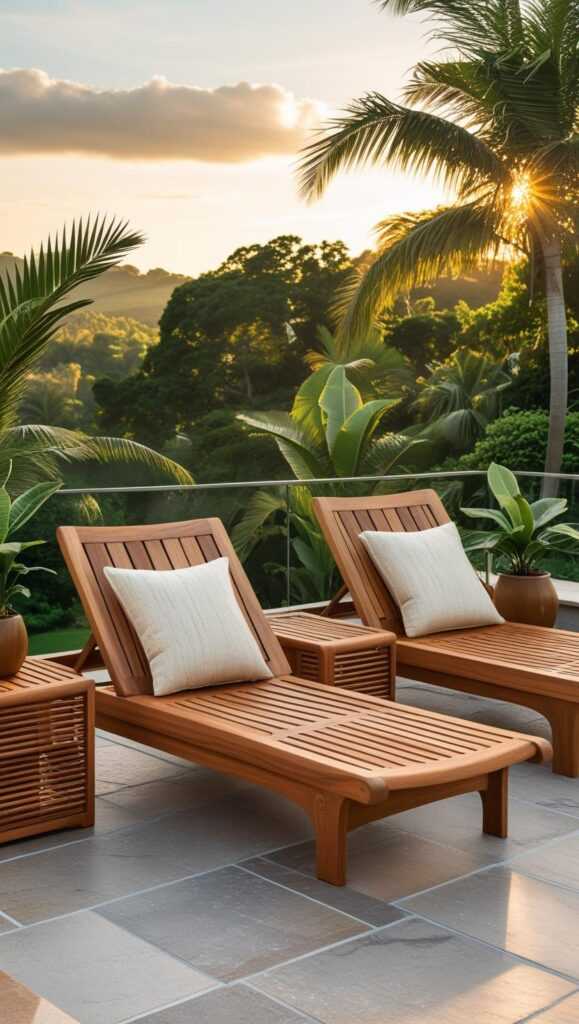
Teak loungers are very durable, making them great for outdoor furniture. They can handle rain and sun without warping or cracking. This means you won’t need to replace them often, saving you money.
Another benefit of teak loungers is their timeless look. The wood’s natural oils give it a warm color that ages beautifully. This makes teak loungers both functional and stylish for any outdoor space.
When comparing teak to aluminum loungers, teak feels more luxurious and is often more comfortable. Aluminum is lightweight and easy to move, but teak’s sturdy build offers a solid seating experience. That’s why many people prefer it.
Aluminum Loungers
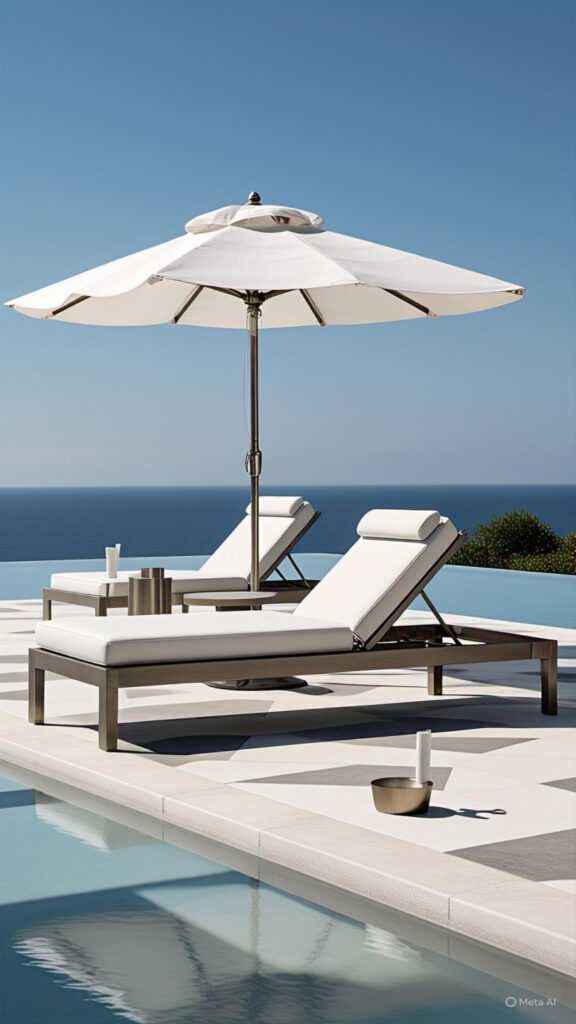
Aluminum loungers are lightweight, which makes them easy to move in your outdoor space. This is helpful if you like rearranging furniture or storing it during off-seasons.
Another big plus of aluminum loungers is their low maintenance. Unlike wooden loungers, they don’t need sealing or staining. Just wash them with soap and water to keep them looking fresh.
Aluminum loungers are also very durable and resistant to rust and corrosion. This makes them ideal for outdoor areas, especially where humidity or rain is common. They’re built to last for many years.
Durability Comparison
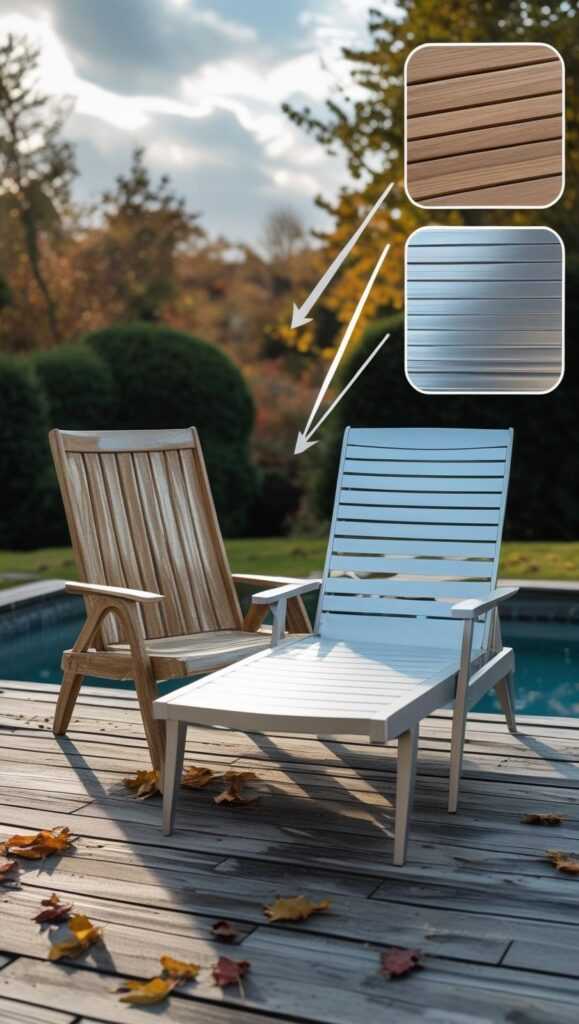
Teak loungers have natural oils that resist water and pests. This property helps them last many years, even in tough weather. Their durability makes teak a smart choice for outdoor furniture.
Aluminum loungers are both lightweight and strong. They resist rust and corrosion, making them great for humid areas or near the sea. With little maintenance, aluminum furniture keeps its appearance and strength over time.
When choosing between teak and aluminum loungers, think about your setting. Teak provides a classic, natural look and withstands severe weather. Aluminum suits those who want something modern, lightweight, and easy to move. Both types are durable for outdoor use.
Maintenance Needs
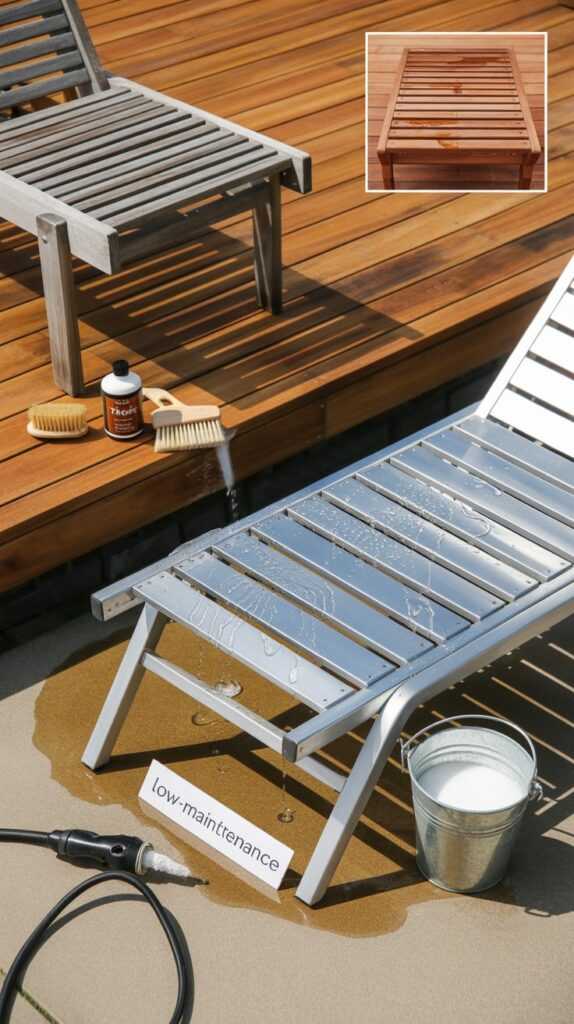
Teak loungers require regular cleaning and oiling to look their best. Over time, teak turns a silver-gray color. However, you can keep the original shade by sanding and oiling it occasionally.
Aluminum loungers are easy to maintain and resist rust. A quick wash with soapy water and a soft brush keeps them looking fresh. They work well in humid areas or near pools.
Both teak and aluminum loungers benefit from protective covers when not in use. Covers shield them from the weather and lower maintenance needs.
Cost Considerations
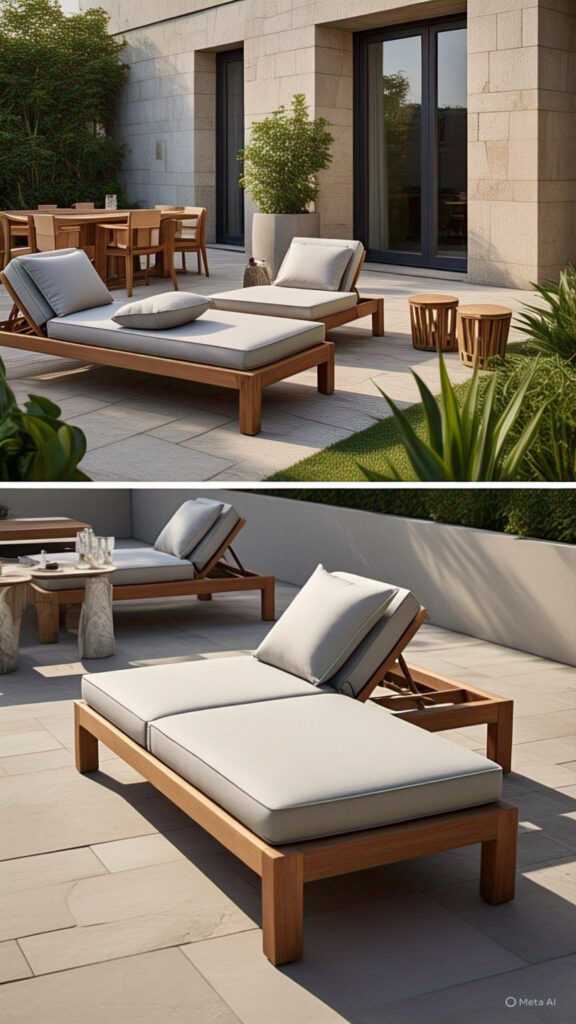
Teak loungers usually cost more because teak wood is pricey. This wood is durable and withstands weather well. They are a long-term investment, but they might not fit tight budgets.
Aluminum loungers are often cheaper and lighter. They have a modern look and resist rust and corrosion. This makes them a smart choice for those seeking a balance of cost and durability.
When comparing teak and aluminum loungers, think about the initial price and maintenance costs. Teak needs regular oiling to keep its look. In contrast, aluminum loungers require less upkeep, which can save you money and effort over time.
Conclusion
Teak and aluminum loungers each have unique benefits. Teak brings timeless beauty and durability. Aluminum is lightweight and low-maintenance. Think about your preferences and needs to choose the best fit for your outdoor space.
What Are the Main Differences Between Teak and Aluminum Loungers?
Teak loungers are crafted from hardwood. They have a classic look and resist water and pests. They age well and add a traditional touch to patios and gardens. However, they are heavier and more costly than aluminum loungers.
Aluminum loungers provide a sleek, modern style. They are lightweight, so they are easy to move. They resist rust and need little maintenance, making them a practical choice for those seeking low upkeep.
Which Lounger Type Lasts Longer in Humid Conditions?
Aluminum loungers handle humidity well since they resist rust and corrosion. They are treated to withstand moisture, making them ideal for pools or coastal areas.
Teak also does well in humidity. Its natural oils repel water and resist decay. However, it needs occasional oiling and care to keep its look, especially in wet areas. With proper maintenance, teak can last as long or even longer than aluminum.
Are Teak Loungers Worth the Higher Price?
Teak loungers cost more at first, but they are a smart long-term investment. Their high price comes from the wood’s rarity, strength, and beauty. With proper care, teak loungers can last for decades.
For homeowners seeking a classic outdoor piece that withstands harsh weather, teak is worth the price. But if you’re on a tight budget, aluminum may give you better value.
How Much Maintenance Do Teak and Aluminum Loungers Need?
Teak loungers need more care. To keep their golden color, oil them now and then. If you skip oiling, they’ll fade to a silver-gray, which some find attractive. Use mild soap and water for cleaning to keep them fresh.
Aluminum loungers are easier to maintain. A simple wash with soapy water usually does the trick. There’s no need to seal, stain, or worry about pests. This makes aluminum a great choice for those who want less upkeep.
Which Lounger Is More Comfortable for Long Use?
Teak loungers provide a solid, grounded feel thanks to their heavy frame and natural materials. Many enjoy the warm wood surface, which feels supportive during long lounging sessions.
Aluminum loungers often use mesh or sling fabric for comfort, but they may feel lighter. Some models come with cushions or ergonomic designs that boost comfort, making them great for long outdoor use.
